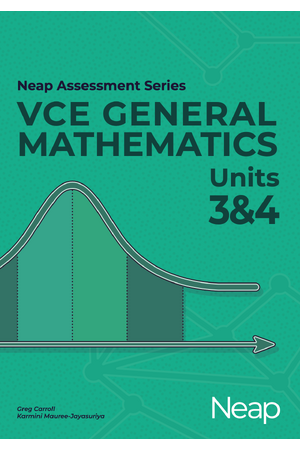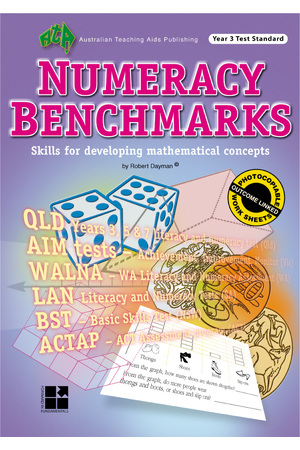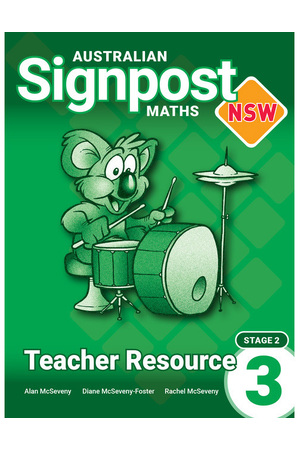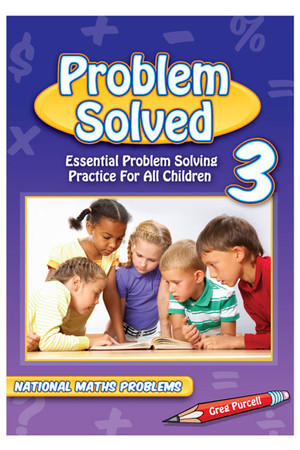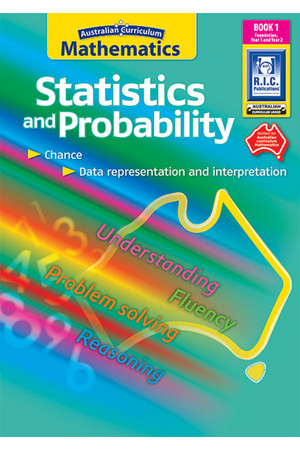Part of the series Maths Quest VCE.
View all products in this series
Jacaranda Maths Quest 12 General Mathematics VCE Units 3 and 4
Everything your students need to succeed.
The best Mathematics series for the new VCE Study Design. Developed by expert Victorian teachers for VCE students.
Get exam ready: past VCAA exam questions (all since 2013)
Students can start preparing from lesson one, with past VCAA exam questions embedded in every lesson. Practice, customisable SACs available for all Units to build student competence and confidence.
Learn online with Australia’s most powerful learning platform, learnON
Be confident your students can get unstuck and progress, in class or at home. For every question online they receive immediate feedback and fully worked solutions. Teacher-led videos to learn and re-learn. Instant reports make tracking progress simple.
Combine units flexibly with the Jacaranda Supercourse
An Australian first, build the course you’ve always wanted with the Jacaranda Supercourse. You can combine all Methods Units 1 to 4, so students can move backwards and forwards freely. Or Methods and General Units 1 & 2 for when students switch courses. The possibilities are endless!
Table of Contents
About This Resource vii
Acknowledgements xiv
1 Investigating data distributions 1
1.1 Overview 2
1.2 Types of data 3
1.3 Stem plots 8
1.4 Dot plots, frequency tables, histograms, bar charts and logarithmic scales 17
1.5 Describing stem plots and histograms 32
1.6 Summary statistics 39
1.7 The five-number summary and boxplots 49
1.8 The mean of a sample 58
1.9 Standard deviation of a sample 65
1.10 The 68-95-99�7% rule and z-scores 73
1.11 Review 84
Answers 97
2 Investigating associations between two variables 109
2.1 Overview 110
2.2 Response and explanatory variables 111
2.3 Contingency (two-way) frequency tables and segmented bar charts 114
2.4 Back-to-back stem plots 123
2.5 Parallel boxplots and dot plots 129
2.6 Scatterplots 135
2.7 Estimating and interpreting Pearson’s product-moment correlation coefficient 145
2.8 Calculating r and the coefficient of determination, r 2 150
2.9 Cause and effect 156
2.10 Review 162
Answers 170
3 Investigating and modelling linear associations 181
3.1 Overview 182
3.2 Least squares line of best fit 183
3.3 Interpretation, interpolation and extrapolation 191
3.4 Residual analysis 199
3.5 Transforming to linearity 208
3.6 Review 220
Answers 229
4 Investigating and modelling time series data 237
4.1 Overview 238
4.2 Time series plots and trends 239
4.3 Fitting the least squares line and forecasting 249
4.4 Smoothing using the moving mean with an odd number of points 258
4.5 Smoothing using the moving mean with an even number of points 264
4.6 Median smoothing from a graph 270
4.7 Seasonal adjustment 276
4.8 Review 289
Answers 299
5 Modelling depreciation of assets using recursion 319
5.1 Overview 320
5.2 A first-order linear recurrence relation 321
5.3 Modelling flat rate depreciation with a recurrence relation 325
5.4 Modelling reducing balance depreciation with a recurrence relation 331
5.5 Modelling unit cost depreciation with a recurrence relation 339
5.6 Review 348
Answers 353
6 Modelling compound interest investments and loans using recursion 359
6.1 Overview 360
6.2 Simple interest 361
6.3 Compound interest as a geometric recurrence relation 367
6.4 Compound interest using a rule 372
6.5 Calculating rate or time for compound interest 378
6.6 Nominal and effective annual interest rate 383
6.7 Review 388
Answers 392
7 Modelling reducing balance loans, annuities and perpetuities using recursion 395
7.1 Overview 396
7.2 Modelling reducing balance loans with recurrence relations 397
7.3 Solving reducing balance loan problems using finance solver 404
7.4 The effect of rate and repayment changes on reducing balance loans 417
7.5 Annuities and perpetuities 430
7.6 Annuity investments 441
7.7 Review 450
Answers 456
8 Matrices 461
8.1 Overview 462
8.2 Matrix representation 463
8.3 Addition, subtraction and scalar operations with matrices 471
8.4 Multiplying matrices 483
8.5 The inverse of a matrix and its determinant 497
8.6 Dominance and communication matrices 505
8.7 Transition matrices and Leslie matrices 516
8.8 Review 537
Answers 547
9 Undirected graphs, networks and trees 555
9.1 Overview 556
9.2 Basic concepts of a network 557
9.3 Planar graphs and Euler’s formula 567
9.4 Walks, trails, paths, cycles and circuits 576
9.5 Trees and their applications 587
9.6 Review 603
Answers 611
10 Directed graphs and network flow 617
10.1 Overview 618
10.2 Precedence tables and activity networks 619
10.3 Critical path analysis with backward scanning and crashing 630
10.4 Flow problems 647
10.5 Bipartite graphs and allocation problems 659
10.6 Review 672
Answers 683
Glossary 691
Index 697
| ISBN | 9781119876380 |
| Publisher | Jacaranda |
| Product Type | Student Books, |
| Year Level | Year 12, |
Be The First To Review This Product!
Help other Teacher Superstore users shop smarter by writing reviews for products you have purchased.







